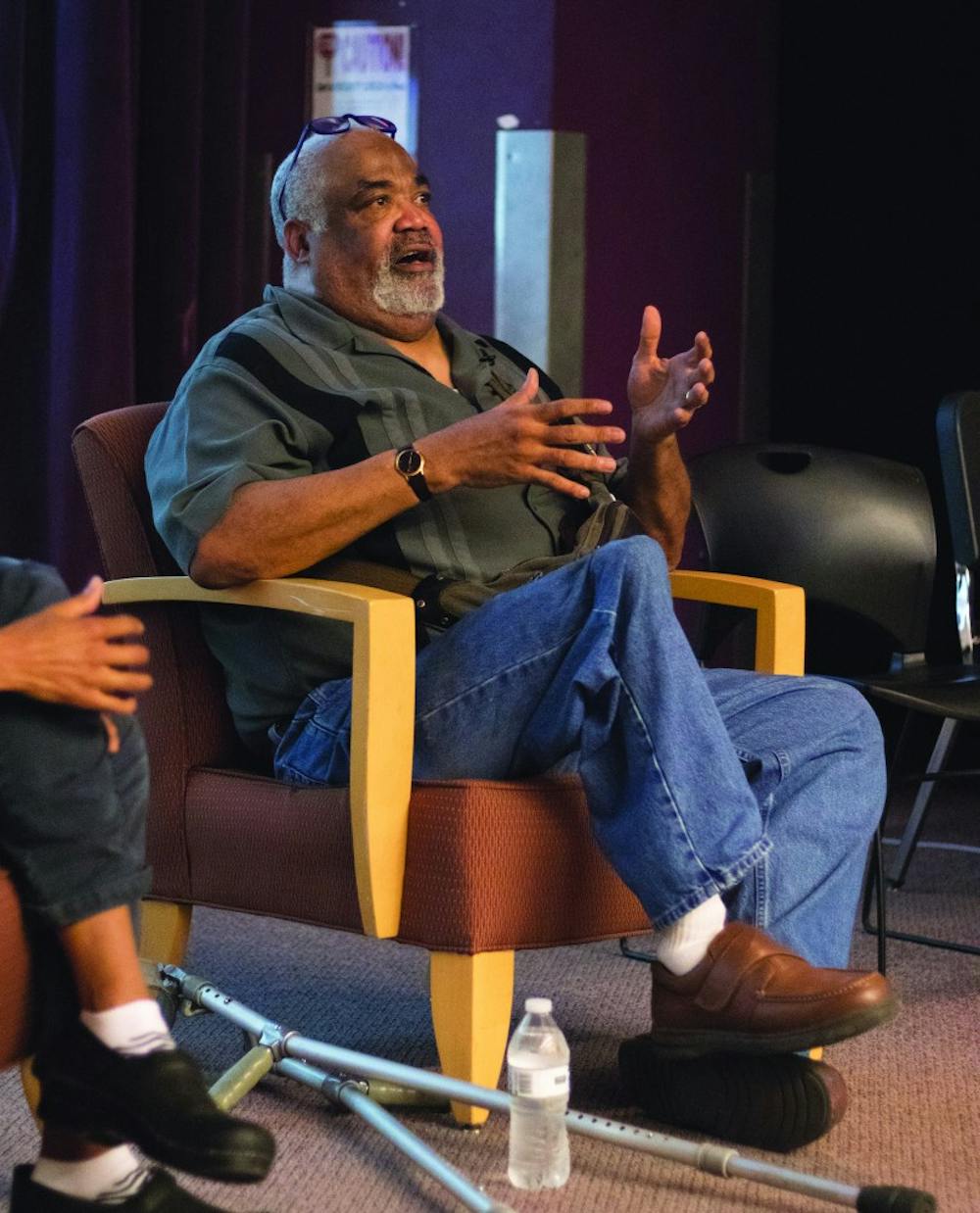About halfway into his speech Tuesday night, painter Peter Williams projected a photo of a tree with multiple lynching victims hanging from its limbs.
“This was not uncommon in the early 20th century. As blacks prospered, entire towns were wiped off the map,” Williams said. “Because a lot of people saw it as ‘you got too big in life, you’re coming down.'”
Williams gave the lecture as part of the University’s Visiting Artist Lecture Series. He was brought by UNC assistant professor Jina Valentine, who met Williams at an artist residency. Williams’ talk spanned decades of his career, and included recent pieces of his work which will be on display in the Hanes Art Center until Sept. 28.
Grim scenes and dark history have helped shape Williams' artistic style. His paintings use vibrant colors and a style that first appears comical to address disturbing and divisive issues. His style borders on the psychedelic and surreal.
In response to a series of police shootings of people of color in 2015 and 2016, Williams painted multiple works of a superhero dubbed "N-Word." N-Word can be seen in Williams’ paintings violently saving people of color from police brutality and falling in love with Libertas, the goddess of liberty. Some attending the talk found William’s focus on social issues and use of history to be thought-provoking.
“I thought it was really inspiring to see race issues that are pulled from historical references and contexts and see them transformed into something that’s so relevant today,” sophomore Aubrey Knier said. “It just goes to show you that even though we think we live in a post-racism society, issues that were going on during slavery and whatnot are still relevant, and we’re still battling today.”
Williams recalled an episode at an art gallery in Detroit where he saw African-Americans admiring Dutch paintings from the era of the Transatlantic slave trade. Williams said that he saw no mention of slavery in the gallery, despite its role in building Dutch wealth at the time. Professing an interest in both history and the black experience, Williams sees Americans failing to acknowledge the dark history of slavery in the country's past.
“As you begin to study some of what’s going on in the history of slavery, it’s so outrageous," Williams said. "It’s so beyond the pale, it’s almost impossible to believe that human beings did these things and they did them often and they did them across the United States. And if they don’t know about them, it’s because our history has been scraped clean.”
Some found Williams' use of history and refusal to shy away from unsettling material important for fostering discussion.




